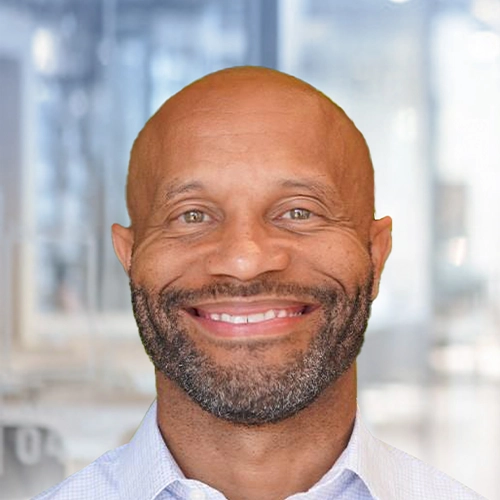
The importance of allied healthcare professionals in modern healthcare

The U.S. healthcare system is facing significant shortages of physicians and nurses, a situation that is projected to worsen in the coming years. The Association of American Medical Colleges (AAMC) estimates a shortfall of up to 86,000 physicians by 2036, while the American Association of Colleges of Nursing (AACN) anticipates a shortage of 230,000 registered nurses by 2025. These deficits pose serious challenges to patient care and hospital efficiency.
To counteract these shortages, hospitals are increasingly turning to Allied Healthcare Professionals (AHPs) to fill critical gaps. These professionals provide specialized diagnostic, therapeutic, and support services that enhance medical teams and optimize healthcare resources.
The Expanding Role of Allied Healthcare Professionals
Allied healthcare professionals play a crucial role in modern healthcare, supporting patient care across hospitals, clinics, and outpatient settings. Their expertise extends beyond traditional physician and nursing roles, encompassing fields such as respiratory therapy, radiology, laboratory science, surgical technology, rehabilitation therapy, and nutrition.
The demand for these professionals is rising as hospitals seek ways to improve efficiency, reduce costs, and maintain quality care despite staffing shortages.
AHPs contribute to essential healthcare functions, from performing diagnostic imaging and lab testing to assisting in surgery and rehabilitation. Their presence allows hospitals to deliver more effective and patient-centered care, especially as the population ages and chronic illnesses become more prevalent.
Why the Demand for Allied Healthcare Professionals is Surging
The need for AHPs is growing for several reasons. The ongoing shortage of physicians and nurses means that hospitals must expand their teams with specialized professionals who can take on critical tasks, easing the burden on overworked medical staff.
By handling diagnostic and therapeutic services, AHPs allow doctors and nurses to focus on more complex patient cases, improving workflow and reducing delays in care.
A shift toward preventive and outpatient care has also heightened demand for AHPs. As hospitals move away from costly inpatient models, they rely on allied health professionals to provide rehabilitation, therapy, and chronic disease management. Physical therapists, dietitians, and respiratory therapists, for example, play an integral role in preventing hospital readmissions and improving long-term health outcomes.
The rise of advanced medical technology has also increased the need for skilled specialists in imaging, radiology, and laboratory science. As medical treatments become more sophisticated, hospitals require trained professionals who can operate complex diagnostic equipment, analyze test results, and support precision medicine initiatives.
Additionally, the aging U.S. population is creating a surge in demand for allied health services. By 2030, one in five Americans will be over the age of 65, leading to a higher prevalence of conditions such as heart disease, diabetes, and neurodegenerative disorders.
Allied healthcare professionals are critical in managing these conditions through therapy, rehabilitation, and chronic disease intervention, reducing strain on hospital resources and ensuring better patient outcomes.
Optimizing Healthcare Delivery and Cost Efficiency
As hospitals navigate staffing shortages and rising costs, optimizing healthcare delivery has become a top priority. Allied healthcare professionals help distribute workload more effectively, ensuring that physicians and nurses can concentrate on high-level care while specialized professionals handle tasks such as imaging, lab work, and therapy. This redistribution improves patient flow, reduces wait times, and enhances overall hospital efficiency.
Integrating AHPs into hospital teams also lowers costs without compromising quality. By preventing complications, reducing hospital readmissions, and supporting outpatient care, allied health professionals help minimize unnecessary medical expenses.
Studies have shown that hospitals with strong allied health teams can reduce readmission rates and improve patient recovery times, ultimately leading to lower healthcare costs and better patient experiences.
Hospitals are also expanding their outpatient services and telehealth capabilities, and allied health professionals are at the forefront of this shift.
Many AHPs now provide remote therapy, virtual consultations, and mobile diagnostics, helping healthcare systems manage patient care more effectively outside of traditional hospital settings.
This shift not only increases accessibility but also alleviates pressure on overcrowded emergency rooms and inpatient facilities.
Investing in the Future of Healthcare Workforce Planning
The demand for allied health professionals is not just a short-term solution to workforce shortages, it’s a long-term strategy for building a more resilient and efficient healthcare system.
As hospitals and healthcare organizations continue to evolve, those that proactively invest in hiring, training, and retaining AHPs will be better positioned to deliver high-quality care while controlling costs and improving operational efficiency.
The challenge, however, lies in identifying and securing top talent in an increasingly competitive job market. Hospitals need recruitment strategies that go beyond traditional hiring models; ones that are data-driven, proactive, and tailored to the unique demands of modern healthcare.
How ZRG Embedded Recruiting Can Help
At ZRG Embedded Recruiting, we understand the critical role of Allied Health Professionals in shaping the future of healthcare. Finding the right respiratory therapists, radiology techs, lab specialists, and rehabilitation experts can be challenging, but we’re here to help.
We partner with hospitals, healthcare systems, and outpatient clinics to identify, attract, and retain top-tier allied health talent through our embedded recruiting model.
Our tailored recruiting strategies ensure that your organization has access to the best professionals in the field, while our data-driven hiring approach provides market insights and analytics to help you build a high-performing, cost-effective workforce.
The demand for allied health professionals is growing, and competition for top talent is fiercer than ever. ZRG Embedded Recruiting is ready to help you stay ahead by attracting and hiring the best professionals for your organization.
Let’s Build Your Healthcare Workforce Together
Contact us today to discuss how we can help you build a high-performing, efficient, and cost-effective healthcare workforce. Let’s shape the future of healthcare together.
Meet the Author



